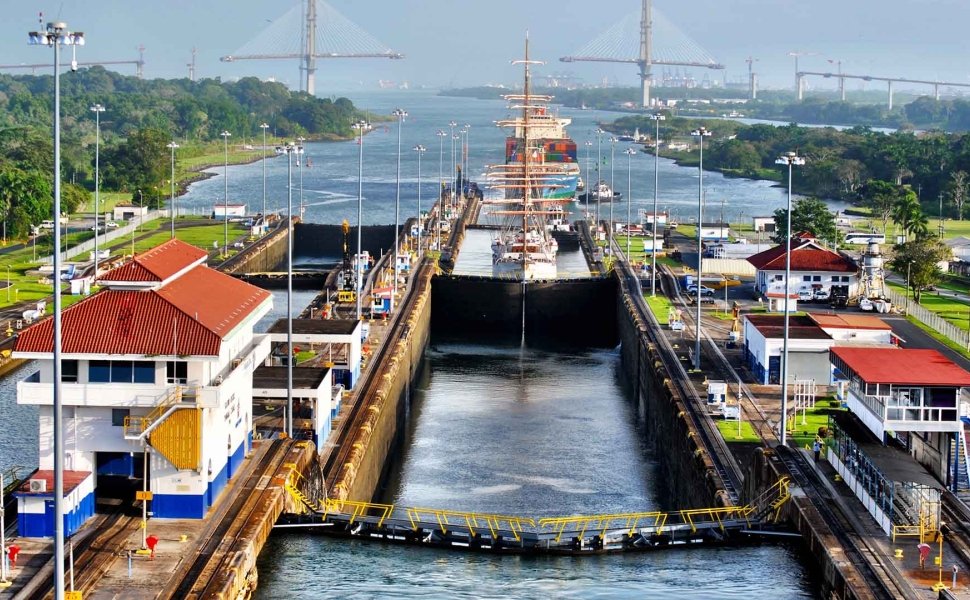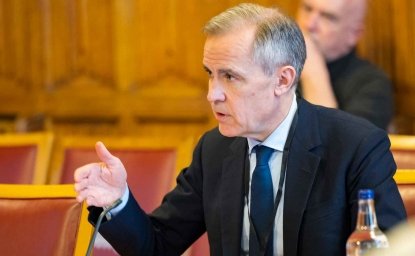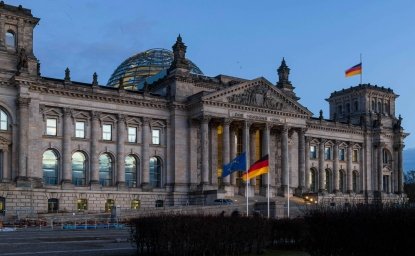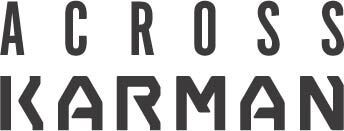This transcript has been lightly edited for clarity.
John Milewski:
Welcome to the Need to Know podcast from the Wilson Center, a podcast for policymakers available to everyone. Always informative, nonpartizan and relevant. We go beyond the headlines to understand the trend lines in foreign policy.
Welcome back to another episode of Need to Know. I'm your host, John Milewski. Need to know is brought to you by the Woodrow Wilson Center. The center is congressionally chartered, scholarship driven, and fiercely nonpartisan. Well, Secretary of State Marco Rubio's first international trip took him to several stops in Latin America. And one of the places he visited was Panama.
This presented an early test of his diplomatic skills, since it came in the shadow of President Trump's remarks about the US possibly retaking control of the critical waterway. Here to tell us what we need to know about the canal and Panama. Views on possible U.S. intentions is the director of the Wilson Center's Latin America program, Benjamin Gaudin. Benjamin, welcome.
Thanks for joining us.
Benjamin Gedan:
My pleasure. John.
JM:
So in President Trump's inaugural address, he talked about taking back the canal, talked about broken promises, talked about Chinese control, all kinds of things. And then President Merlino said the canal belongs to Panama and will continue to belong to Panama. The Panama Canal is not a concession or a gift from the United States, was his exact words. So where do we sit today on this discussion?
You know, I think there were some people who wanted to believe it was Trump hyperbole and that it wasn't serious and that it would just go away. But it is lingering. How are the people in Panama viewing this?
BG:
I think everyone in Panama is surprised as frankly, a lot of Americans are as well. The relationship with Panama was quite strong. The perceptions of the canal were of stability and professionalism. I don't think anyone expected this crisis heading into the new administration in the new year. And as of now, it's very much unresolved. And there really aren't question, there aren't answers to the question you just presented, which is to say, we're not really certain what President Trump is hoping to get out of this confrontation.
JM:
And what about a President Trump's charges that the U.S. is being charged inordinate fees to navigate through the canal, and that China has disproportionate influence? How much of that holds up to scrutiny?
BG:
Yeah. So it is expensive to transit the canal. He's right about that. All countries are charged the same amount, so there's no discrimination against the United States. But tolls have increased over time, particularly lately, as the canal has struggled with drought related to climate change. That has reduced the number and size of ships that could use this waterway.
And so to compensate, they have increased tolls. The China question also points to a concern that isn't new. There's a Hong Kong based company that operates ports on either side of the canal. And though it's been there for decades, as the relationship between the United States and China has worsened, concern has increased over the presence of this company so close to the waterway.
It is not true that China is operating the canal in any way. But it is true that it has a presence very close and maybe too close for comfort.
JM:
You know, unless you're involved in shipping or trade, international trade in a specific way. Unfortunately, Americans just don't pay much attention to this, right? But maybe the last time the Panama Canal was making headlines was back when Jimmy Carter was making a deal to hand over control to Panama. But now, here we are, decades later, and suddenly it's back in the news.
You know, educate us on what Panama has invested in the canal since then. It wasn't as if they just took it as it existed when it was built almost 100 years ago, and it's stayed the same. They've been dredging and and doing all kinds of construction as well. Give us some sense of what their investment has been.
BG:
Yeah, it's a good point because when those in Washington talk about retaking the Panama Canal, they'd actually be taking something that Panama built as well. Panama doubled the capacity of the canal a few years ago, with a multibillion dollar project, so that it could accommodate so-called post Panamax ships. It's such an important waterway that ships are designed to fit just in the locks and maybe inches of clearance on each side.
And when ships exceeded the size that this 1914 canal could accommodate, the Panamanians expanded the water ratio even bigger, deeper, longer ships could make that journey. So you're absolutely right. Not only in the Panamanians been able to maintain the canal, keep it operational, actually increase the rate of transit, increase the total number of ships transiting the canal, decrease the rate of accidents, but they actually double the canal's capacity.
JM:
And, you know, I use the term the rhetoric critical water global waterway. You know, but could you put some meat on those bones? How important is this canal to global trade?
BG:
Absolutely. So the United States is the number one user of the Panama Canal. It's maybe five 6% of all global trade passes through this waterway. And the United States relies upon it, for example, to get goods from East Asia, a major manufacturing hub, to the east coast of the United States, a major consumer of manufactured goods. It is a way the United States in the East Coast gets goods from the west coast of South America.
China is the number two user of the canal. Also, to access the U.S. market, it's absolutely critical. And if you don't believe me, just think of the alternative. It's not appealing. It is environmentally damaging. It's costly. And time and money. You have to go all the way down by the Cape, by Cape Horn, below South America to go across the oceans.
If you don't have access to this shortcut.
JM:
So, welcome to Panama, Secretary Rubio. He walks into this cauldron. Did he do anything to make it better or worse during his visit? How are people feeling in Panama after having a chance to meet directly with, Marco Rubio?
BG:
So the question surrounding his visit to Panama was whether in fact, the United States wasn't really looking to recapture the Panama Canal. It just wanted to spook Panama enough to get concessions on one or both of the issues that President Trump raised in his inaugural address and during the campaign. And those issues, again, are the cost of transiting the canal for U.S. commercial ships and naval vessels.
And the question of whether China's presence at each side of the canal jeopardizes the operation of the canal, or in potential war time scenario, would impede the use of the canal by the United States Navy. And for a moment, it looked like we might have resolved the crisis. Panama had suggested that it would review the tolls that the U.S. paid, and it said that it would be auditing the contracts with this Hong Kong based company, with the suggestion that it might find some irregularities that would justify breaking the contract and bringing in a U.S. or Western port operator.
So for a moment, it didn't look like we had at least lowered the temperature, or maybe even found an exit ramp for this dispute.
JM:
Panama, as always, or at least in recent history, been very pro-American, very American friendly. Are they choosing sides in this competition between America and China?
BG:
It's an odd moment for a diplomatic crisis of Panama precisely because it is so pro-American. Its new president, who's been in office just about a year or so, took office pledging cooperation with the United States on migration. He signed an agreement just hours after his swearing in with the last U.S. administration, in order to stop migrants from traveling toward the United States through the so-called Darién Gap, this deadly jungle territory between Colombia and Panama.
And he expressed real interest in reorienting Panama toward the United States in a way from China. Panama, a few years ago, in 2017, had broken ties with Taiwan. Established formal relations with China. This upset the United States, given the historical ties between these countries. But it looked like we were at the start of a golden age where Panama would be moving back in the other direction.
Instead, the United States has found the quickest route toward a crisis in Panama and to destroy any goodwill which is going after the Panama Canal.
JM:
And is is this irreparable damage to the relationship, or could this just be a bump in the road?
BG:
No, I think as long as the United States finds some reasonable accommodation, Panamanians will again rally around a close relationship with the United States. It's typically governed by center right conservative figures who generally seek strong ties to the United States. The U.S. is the biggest user of the canal. The most important economic asset in Panama. I think for lots of historical and economic reasons, we're likely to recover the relationship, provided that there's a solution to this that falls well short of the US recapturing the canal.
If the United States continues to insist on taking the canal, then it's hopeless, because that's an issue that all Panamanians agree on.
JM:
What? Benjamin, what are the regional implications as as you know, you know, a need to know has a listenership on Capitol Hill. A lot of our programing is directed to staffers working on these issues or members of Congress. What would your do, your advice to them to keep in mind as it relates to the regional implications for the United States as it deals with Panama on the canal?
BG:
Yeah, I'd say look at the motivations, not just Jimmy Carter, but the Gerald Ford beforehand, Henry Kissinger and others who had promoted negotiations with Panama over the canal turn over. It really wasn't just to show magnanimity that a big country could treat a small country fairly, though. That was one of the motivations for Jimmy Carter. It was that the canal might not be operational if there's a hostile local population, that the threat of riots, protests, maybe even sabotage would make it impossible to run the canal.
And number two, that it was a huge foreign policy liability, one that the Soviet Union and the Cubans all took advantage of, and one that the Latin American left continues to point to now that the United States is again showing interest in taking over the canal. The argument that the U.S. is an imperialist bully that doesn't treat Latin America fairly.
We're playing into the hands of our critics now by saying the United States needs to return to Panama.
JM:
So where does it go from here? You know, and I know I always hesitate to ask our Wilson experts for predictions, because that's not the game we play. It's not punditry, right? We're trying to do fact based analysis. But you see the trend lines. You see the headlines. What is your sense of. Is this a front burner issue that's going to reach a resolution sooner rather than later, or is this something that could linger for a while?
BG:
The Panama Canal is of strategic importance to the United States. And so I don't think the U.S. is going to entirely walk away from this conflict. What I believe is the Panama is committed to finding a resolution and fairly flexible in what it might offer. It does seem like this review that is underway of the contracts that this Hong Kong based company very well might surface some irregularities that might justify the Panamanians canceling the contract, and maybe that'll be enough.
You can imagine other forms of migration cooperation unrelated to the canal, but that would allow the white House to claim victory and somehow move away from this level of high tension.
JM:
Well, whatever happens, we know you'll be watching and we'll be asking you about it. So, Benjamin, as always, thanks very much.
BG:
My pleasure. Thanks, John.
JM:
I'll let you know that. Also, if you'd like to hear more from Benjamin on the Rubio trip to other countries than Panama, our sister program, Wilson Center, now features Benjamin this week as well. And if you come to Wilson center.org and look at the programs tab, you'll find the Latin America program where you'll see lots of good work from Benjamin and all of his colleagues.
We hope you'll do that. And we hope you'll join us again for another episode of Need to Know. Until then. For all of us at the center, I'm John Milewski. Thank you for your time and interest.











